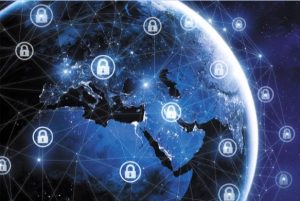UAE And US Companies Teamed Up to Deliver Cyber Ranges in the Gulf
Beacon Red, a UAE-based firm and a part of Edge Group military conglomerate, and Quali, an Israeli-American software company, have joined hands to collaborate in providing Cyber Ranges in the Gulf, joint cybersecurity services, cyber training, and testing space to six Middle Eastern countries of Gulf, namely Saudi Arabia, Kuwait, the United Arab Emirates, Qatar, Bahrain, and Oman. These countries are members of the Gulf Cooperation Council (GCC).
The companies launched the idea of this strategic collaboration in February, and so far, both companies have tremendously enhanced their collective capabilities in the production of a competitive security system. As a result of the strategic collaboration, the established security system is called the Cyber Range on Wheels and Cyber Lab on Wheels. The system would deliver these services to each bloc member for military, civil, and critical infrastructural projects and their validation. It would be allowed for each customer to create and replicate the most favorable working space according to their case specifications, government standards, usage requirements, and needs.
Beacon Red’s cybersecurity, training, and intelligence portfolio and Quali’s specialty of cloud automation platform together can establish such complicated training space, production environments, and cyber range scenarios that mix virtual and physical attributes. Beacon Red’s CEO Maurice De Almeida said that the companies had received several clients interested in building and designing robust cyber range scenarios according to case specifications and standard requirements. However, there is no information disclosed regarding the financial particulars of this strategic agreement, but both companies have invested heavily in this deal.
It is a knowledge and technology-sharing partnership that would allow the interested customers to use the joint services to simulate production environments, to test the advanced security solutions integration, to conduct penetration testing and threat vulnerability assessments, to test software updates, and to detonate the malware, even in the remote working areas, in the Gulf region. Moreover, customers can establish complex cyber ranges and interoperability testing scenarios for managing critical security environments. The customers can do all this in a safe environment without disrupting or adversely impacting the original environments, as mentioned by De Almeida.
Both companies aim to strengthen the local sovereign and public defense capabilities and to provide customers with flexible yet robust cybersecurity posture in the face of asymmetric threats. So, this security system, which is based on the industrial control system and supply chain, can serve this defense purpose by rooting out the original threats of the cyber domain and delivering unconventional solutions.







